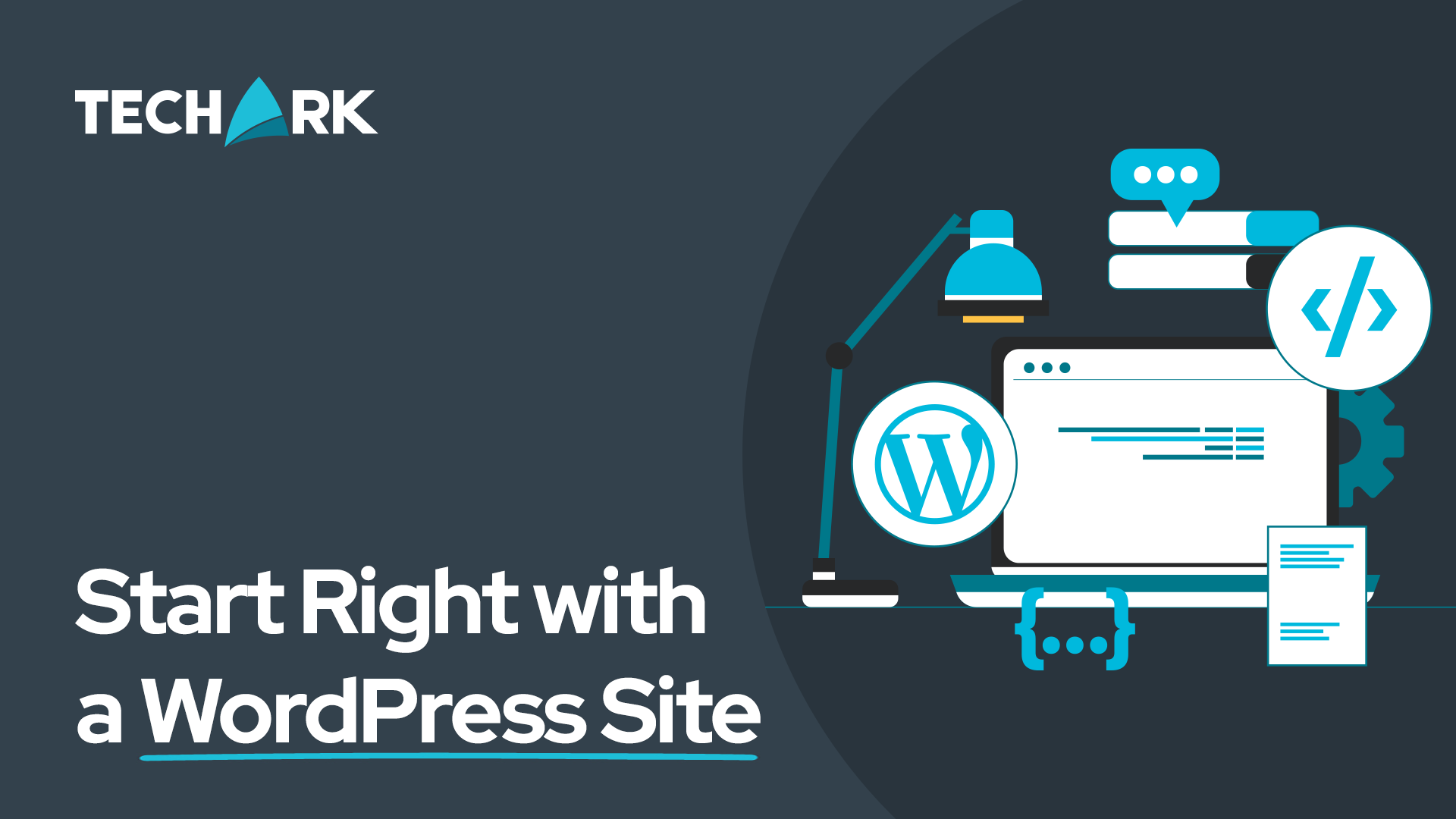Contact Us
Send Us a Message
Need expertise and innovation on your project? Our team can help.
The Bottom Line, Upfront: At TechArk, we recommend and prefer WordPress for its SEO benefits, monthly upkeep costs, and flexibility. However, both platforms can work well, depending on your business needs.
Table of Contents
Introduction
If you are considering building an online store, you have likely spent some time searching for something like “Shopify or WordPress” and reading a few online articles.
The decision-making process can be tough, especially if you do not know what you are looking for in an e-commerce platform. In this article, we’ll walk you through, step-by-step, how to make the choice between WordPress or Shopify for your new website.
Why Should I Use WordPress?
You should use WordPress if you want full control over your user experience, agency partners, and integrations.
WordPress has two great advantages over Shopify for customization:
- Open source code: WordPress code is free for anyone to download and modify, meaning that any developer can take WordPress and run with it. You pay WordPress no licensing fee for its software. Your costs go to making the site your own (more on that in a minute).
- High adoption rate: 43% of all websites use WordPress. This scale means that there is a large amount of community resources. There is likely a use case similar to yours.
When customizing WordPress for e-commerce, the most common (and TechArk’s preferred) plugin is WooCommerce. Like WordPress, WooCommerce is open source, meaning you can build your own extensions or install them from third parties.
Read More: Should I Pick a WordPress Theme or Custom Design?
Why Should I Use Shopify?
Shopify is right for you if you need a simple, easy setup that works well for e-commerce without coding or development knowledge.
Shopify has two key pros over WordPress:
- Built for e-commerce: Shopify is an e-commerce platform first, designed for online stores with basic features built in. Unlike WordPress, you do not have to purchase a separate plugin or download any code to list products, handle orders, or run transactions.
- Customer Support: Open source platforms like WordPress offer no customer support; you get the code as-is. With Shopify, you have access to 24/7 support because it is software-as-a-service.
Several of our clients choose Shopify for their online shops because these sites are easy to create and maintain.
How Do I Choose Between Shopify or WordPress: Three Considerations
Cost
Despite the free nature of WordPress’ open source code, simple Shopify sites are less expensive to build and maintain. However, as you wish to make customizations and build integrations, WordPress has a much better return on investment.
Aside from the premium software you license, you own the code with WordPress websites, which means you can change providers if you need to without losing your site.
With Shopify, you lose your site as soon as you leave the platform because it is proprietary.
Integrations
Shopify boasts more ecommerce specific integrations than WordPress’ WooCommerce plugin. Overall, however, WordPress has 50,000 total plugins in comparison to Shopify’s 8,000, meaning that if you have needs beyond standard e-commerce, WordPress can support them.
SEO
If you have asked yourself, “Is WordPress or Shopify better for SEO,” WordPress is the clear frontrunner. According to a Feb. 2024 survey by Fiverr, 84.7% of the owners and marketers surveyed preferred WordPress for SEO.
Shopify and other software-as-a-service products like Squarespace and Wix can’t beat WordPress when it comes to:
- Technical SEO – WordPress’ flexible code makes it easier to optimize for Google
- SEO plugins – Yoast Premium and AIO SEO are superior to Shopify’s built-in SEO features
- Content First – WordPress was originally built as a content platform, which makes it ideal for publishing content in addition to product listings
There is no question: WordPress is better than Shopify if you want to drive SEO results.
WordPress vs. Shopify: A Full Side-by-Side Comparison
| Feature Category | Shopify | WordPress (WooCommerce) |
| Ease of Use | Very user-friendly with a drag-and-drop editor | Requires more setup, especially with themes and plugins |
| Customization | Good customization with themes and apps | Highly customizable with themes and extensive plugins |
| Scalability | Highly scalable, handles traffic spikes well | Scalable, but may require more technical upkeep |
| Payment Processing | Supports multiple payment gateways and currencies without additional plugins | Requires plugins for some payment gateways; supports multiple currencies |
| Mobile Compatibility | Automatically mobile-responsive | Depends on a theme; generally responsive |
| SEO Features | Basic built-in SEO tools; apps available for advanced needs | Excellent SEO capabilities, especially with additional plugins like Yoast SEO |
| Integration Capabilities | Extensive app marketplace for easy integration | Strong integration potential with numerous plugins |
| Marketing Tools | Built-in tools for basic marketing; additional tools via apps | Strong marketing plugins available (e.g., MailChimp, HubSpot) |
| Customer Support | 24/7 support via chat, email, and phone | Community support; additional support via plugins and themes |
| Security Features | Provides SSL certificates and is PCI compliant | SSL often through hosting; security depends on setup and plugins |
| Analytics and Reporting | Built-in analytics tools; additional tools via apps | Advanced with plugins like Google Analytics integration |
| Pricing Structure | Monthly subscription with different tiers; additional costs for apps and themes | Mostly free; costs associated with premium plugins, themes, and hosting |
See Also: Key Elements of a Lead Generation Website
TechArk’s Verdict: WordPress is the Winner
For more than 12 years, TechArk has used WordPress as our primary tool for website development because our clients:
- Have full ownership of their website
- Full control over the design and user experience
- Demand and receive great performance
Schedule your free website consultation today, and learn what a new WordPress website can do for your business.



